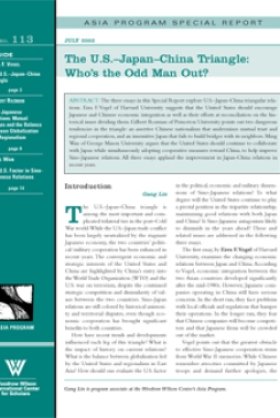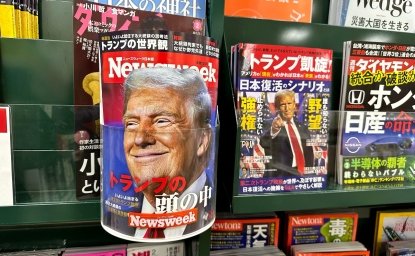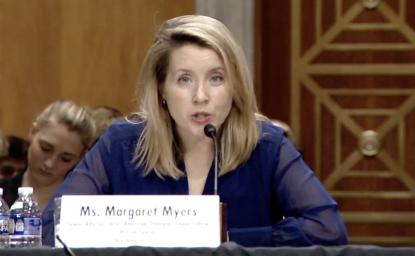The U.S.-Japan-China Triangle: Who's the Odd Man Out?


The three essays in this Special Report explore U.S.–Japan–China triangular relations. Ezra F. Vogel of Harvard University suggests that the United States should encourage Japanese and Chinese economic integration as well as their efforts at reconciliation on the historical issues dividing them. Gilbert Rozman of Princeton University points out two dangerous tendencies in the triangle: an assertive Chinese nationalism that undermines mutual trust and regional cooperation, and an insensitive Japan that fails to build bridges with its neighbors. Ming Wan of George Mason University argues that the United States should continue to collaborate with Japan while simultaneously adopting cooperative measures toward China, to help improve Sino-Japanese relations. All three essays applaud the improvement in Japan-China relations in recent years.

Indo-Pacific Program
The Indo-Pacific Program promotes policy debate and intellectual discussions on US interests in the Asia-Pacific as well as political, economic, security, and social issues relating to the world’s most populous and economically dynamic region. Read more

Explore More
Browse Insights & Analysis
Myanmar’s Junta and the 2026 Elections: A Fig Leaf for Legitimacy?

Climate Change, Peace and Security: Discourse Versus Action in Asia

